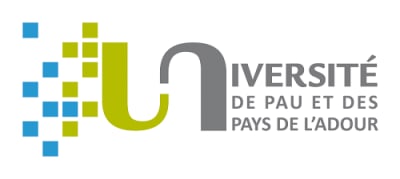
GREEN Graduate Program in Environmental analytical chemistry and microbiology (EACM)
Université de Pau et des Pays de l'Adour

Key Information
Campus location
Pau, France
Languages
English
Study format
Blended, Distance Learning, On-Campus
Duration
1 - 2 year
Pace
Full time
Tuition fees
EUR 243 / per year
Application deadline
31 Mar 2024
Earliest start date
Sep 2024
Introduction
Several key challenges are addressed in this graduate program such as:
- The promotion of advanced knowledge on isotopes, inorganics, radionuclides, and associated bioinorganic structures, including nanoparticles/nano plastics in different environmental compartments and their biological effects (ecotoxicology);
- The implementation of Physico-chemical and microbiological processes for remediation strategies;
- The assessment of the contaminant effects on micro-organisms at several levels of the biological organization (from molecules to communities). These combined approaches provide a unique set of skills to allow the development of eco-concepts and eco-technologies for sustainable development.
Interdisciplinarity and Research immersion in laboratories
In order to promote transversal and interdisciplinary activities, all the Graduate Programs proposed by GREEN are identically structured. In addition to the research training which represents 40% of a Master’s credits, the courses offered in each GP are a combination of standard thematic culture courses in the field of Energy and Environment (Sustainability Science, Resilience Alliance, Ecological Economics, and Political Ecology, Health & Ecotoxicology, Energy Law & Policy…..) and essential soft skills completed by fundamental and specialized disciplinary courses to fit with the research or topic interest of the students.
Admissions
Curriculum
Project-based learning
The research-based training program of our GREEN project follows the active educational approach of “student-based learning”. The aim is to guide our students and help them structure their research and innovation projects while giving them a great deal of autonomy.
In the second year, there is a significant reduction in the number of face-to-face courses in favor of project-based learning, to put students in a professional situation so that they can experiment with group work and project management. This framework encourages strong interaction between students, lecturers, and researchers to ensure easier integration into the host research laboratories. The interdisciplinary project proposed in the third semester should give students from all the graduate programs an opportunity to produce joint, multidisciplinary work.
Program Outcome
The program is carried out closely collaborating with the IPREM - Institute of Analytical Sciences and Physical Chemistry for the Environment and Materials.
Assets
- Scholarships
- Training in English
- More than one-third of ECTS acquired in research
- Integrating research laboratories right from the 1st semester of M1
- Student-centered learning
- Multidisciplinarity (Chemistry, Physics, and Biology)
- Post-graduate studies with a Ph.D. thesis - if the criteria of excellence are recognized
- Tutorship and tailor-made programs: each student will have a tutor who will build his curriculum related to his aspirations and research interest.
The tutor will also help the student define a series of face-to-face or e-learning courses (up to 20 or 25% for the STEE GP) that s/he can easily keep up with.
Career Opportunities
Sectors
- Environment
- Agribusiness
- Analytical Chemistry
- Chemical industries
- Biotechnology
- Life sciences
Fields
- Research
- R&D structures
Positions
- Academic positions
- Researchers (public institutes or private companies)
- Research and Innovation Engineers